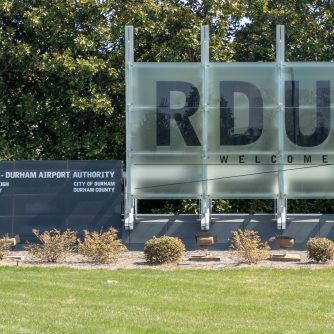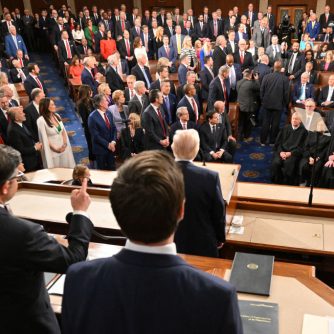In a recent episode of Carolina Newsmakers, host Don Curtis welcomed Cecilia Holden, President and CEO of MyFutureNC, a nonprofit organization dedicated to advancing educational attainment across North Carolina. The podcast delved into the mission, challenges, and strategies of MyFutureNC, highlighting the critical role of education in the state’s economic and social development.
Episode timeline
The Genesis of MyFutureNC
MyFutureNC was established in 2019 as a response to North Carolina’s talent crisis identified by leaders like Margaret Spellings, former UNC System President and U.S. Secretary of Education, and Mebane Rash, CEO of EdNC. The organization aims to ensure that by 2030, North Carolina will have 2 million individuals aged 25-44 with a high-quality credential or degree. This goal is not just a number; it represents a strategic imperative for the state’s economic vitality and individual prosperity.
A Statewide Commitment to Education
Holden emphasized that the educational attainment goal is codified into state law, reflecting bipartisan support and the recognition of education as a cornerstone of North Carolina’s future. She praised the state’s longstanding cultural emphasis on education, which has driven the development of a robust university system and numerous private educational institutions.
Current Progress and Challenges
Despite significant strides, including a four-percentage-point increase in educational attainment, North Carolina still faces a shortfall. Currently, the state is behind by 24,000 individuals and is projected to fall short by 71,000 by 2030 if current trends continue. The disparity in educational attainment is particularly stark in rural areas, with 18 counties lagging behind the rest of the state.
Strategic Initiatives and Regional Impact
MyFutureNC employs eight regional impact managers who work across the state’s economic prosperity zones to tailor educational strategies to local needs. These managers collaborate with community leaders to set local educational goals and implement plans to meet them. This localized approach is critical, given the diverse economic landscapes across North Carolina’s 100 counties.
The Role of Economic Development
Holden underscored the inextricable link between education and economic development. Higher educational attainment levels correlate with better economic opportunities and development within communities. This relationship drives MyFutureNC’s efforts to increase educational attainment as a pathway to broader economic growth.
Adapting to a Post-Pandemic Landscape
The COVID-19 pandemic disrupted educational systems but also highlighted existing gaps and areas for improvement. MyFutureNC used this period to accelerate its initiatives, focusing on academic readiness and bridging the digital divide that left many students without necessary resources. The organization also noted a rise in “opportunity youth” (those aged 16-24 not in school or working), a demographic critical to achieving the 2030 goal.
Funding and Partnerships
MyFutureNC is primarily funded through philanthropic donations, with significant support from foundations like the John M. Belk Endowment and the Goodnight Educational Foundation. Additionally, strategic investments from the North Carolina General Assembly have supported specific projects. This funding structure underscores the collaborative effort between public and private sectors in addressing the state’s educational needs.
Innovative Educational Models and Workforce Alignment
The podcast highlighted several innovative programs, such as Project Kitty Hawk, which aims to re-engage adult learners, and the Surry-Yadkin Works program, which provides high school students with paid internships. These initiatives reflect a broader strategy to align educational outcomes with workforce needs, ensuring that students are prepared for high-demand, high-growth careers.
Advocacy and Policy Initiatives
MyFutureNC advocates for policies that support its mission, such as funding for non-degree credential programs and local innovation grants. The organization also supports initiatives like NC Pre-K and the science of reading, which are foundational to long-term educational success.
Looking Ahead
As MyFutureNC continues its work, the focus remains on achieving the 2 million by 2030 goal through a combination of evidence-based practices, policy advocacy, and local engagement. The organization is committed to ensuring that every North Carolinian has the opportunity to succeed through education, ultimately driving the state’s economic and social prosperity.
In conclusion, the podcast episode provided a comprehensive overview of MyFutureNC’s efforts to enhance educational attainment across North Carolina. Through strategic initiatives, partnerships, and a steadfast commitment to addressing local needs, MyFutureNC is poised to make significant strides toward its ambitious goal, benefiting individuals and communities statewide.





